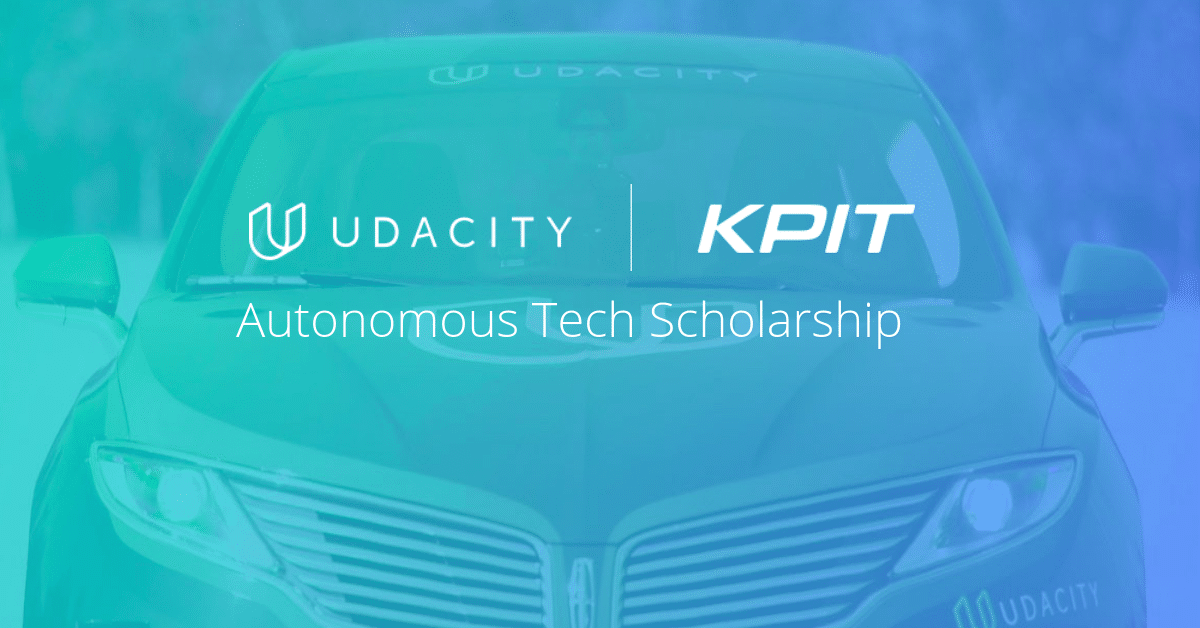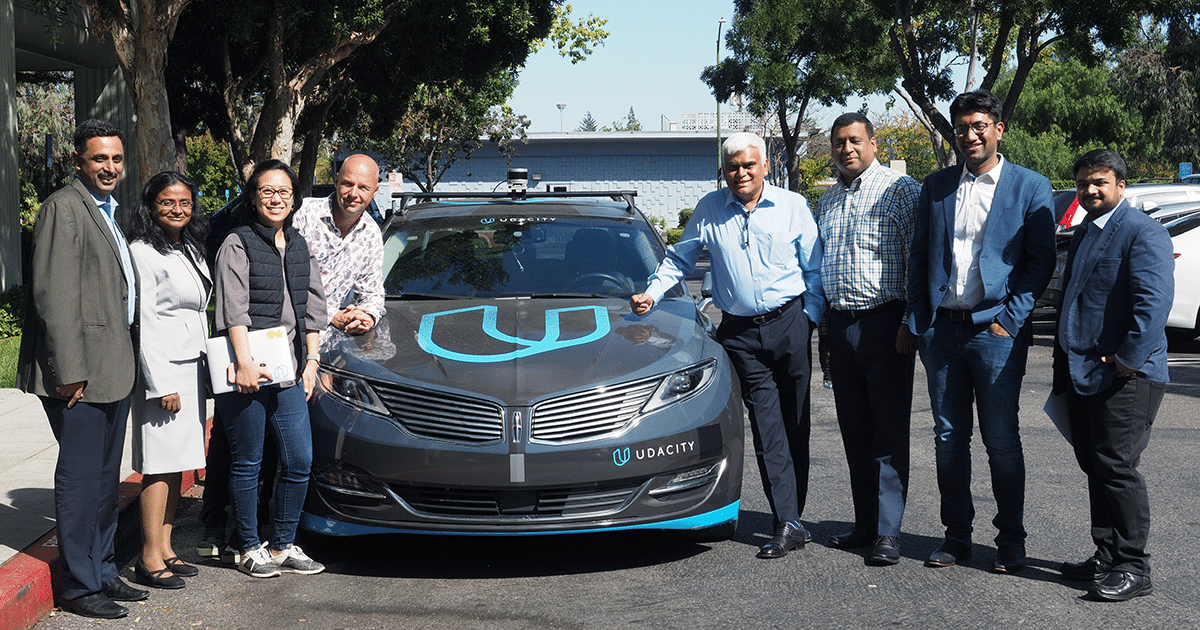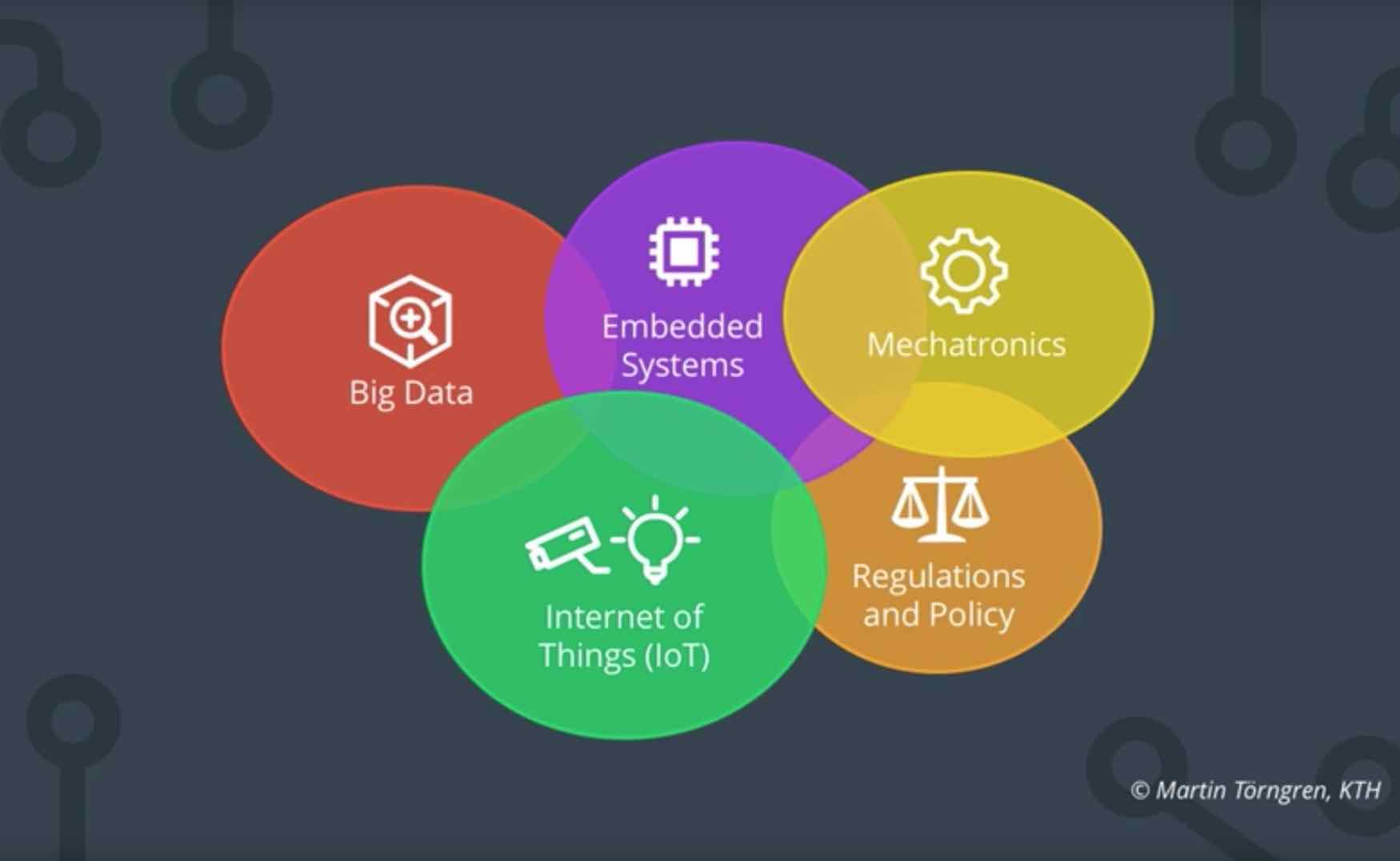Udacity and KPIT have created a new scholarship for aspiring autonomous vehicle engineers in India. Successful applicants will enter Udacity’s Self-Driving Car Engineer Nanodegree program, and top performers will earn a job interview with KPIT!

Today we’re pleased to announce the Autonomous Tech Scholarship, a new venture with global technology company KPIT. We have partnered with KPIT to offer scholarship opportunities to residents of India who are eager to enter the world of autonomous technology, and advance their careers in this transformational space.
This partnership between Udacity and KPIT not only affords aspiring learners a tremendous new learning opportunity, it also serves to provide increased visibility in the region for this important field. While still new, the field of autonomous systems is rapidly emerging as a viable career path, and the ecosystem around this space—which includes areas such as artificial intelligence, data science, deep learning, machine learning, and more—is one of the most promising employment arenas in our modern economy.
“Autonomous vehicles are not only the next big thing in the automotive space but they are already a reality. The growing global interest in autonomous vehicles has led to a rise in demand for professionals skilled in areas such as machine learning, AI, and autonomous systems. As the only domain player focusing on self-driving vehicles and autonomous systems across the globe, we are committed to empowering the country’s large talent pool with the skills they need to excel in this field.” —Ishan Gupta, Managing Director India, Udacity
KPIT, who announced the partnership in a press release earlier this week, is one of the leading organizations focused on next generation mobility technologies in India. With development centers in Europe, the United States, Japan, China, and India, KPIT is present where the mobility ecosystem is transforming. We are especially excited to collaborate with KPIT on this scholarship opportunity, as their extensive knowledge of the automotive industry, combined with their front-line positioning in the autonomous systems field, makes them an ideal partner for mainstreaming this technology, and opening the field to a far wider range of talented contributors.
“While autonomous systems and self-driving technologies are finding great reception in the US and Europe, their impact on the larger mobility landscape of evolving economies such as India could be even more significant. This association enables us to combine our deep domain knowledge of the automotive industry with Udacity’s world-class learning platform to enable our employees with an unparalleled upskilling opportunity. Such collaborations will bring benefits to industry as well students community to learn the latest technologies.” —Kishor Patil, Co-founder, CEO and MD, KPIT Technologies
The Udacity KPIT Autonomous Tech Scholarship is open to all applicants who are Indian residents, who are 18 years of age or older, and who ideally have at least two years of work experience in related fields and/or technologies. The scholarship experience is divided into two phases:
Scholarship Phase 1:
All applications will be thoroughly reviewed, after which we will select around 500 recipients to enter Term 1 of Udacity’s Self-Driving Car Engineer Nanodegree program. Enrolled students will then have two months to successfully complete Term 1. Over the course of your studies, you will explore concepts such as computer vision and sensor fusion, and learn how to apply deep learning to automotive problems. You will use these newly-learned techniques in real-world projects focused on topics such the detection of lane lines, the prediction of steering wheels angles, and more.
Scholarship Phase 2:
The top 100 performers in Term 1 of the Self-Driving Car Engineer Nanodegree program will earn the opportunity to interview with KPIT for global employment opportunities. Every individual who successfully interviews and gets hired will additionally earn free enrollment into Term 2 of the Self-Driving Car Engineer Nanodegree program, to ensure you are able to continue your studies, and make the most of your new career opportunity.
Application details:
- Applications for the scholarship opened on November 1, 2018
- The deadline for applications is November 10, 2018
- Applicants selected for Phase 1 of the scholarship will be notified on November 12, 2018
- Accepted students will begin Term 1 of their Self-Driving Car Engineer Nanodegree program on November 15, 2018
To see full application details, and to apply for this opportunity, please visit the Udacity KPIT Autonomous Tech Scholarship landing page.
“Self-driving cars will change the world in ways we can’t even imagine. Indian companies like KPIT are now gearing up to hire many new autonomous vehicle engineers to support this rapidly-growing industry.The KPIT-Udacity Scholarships open the world of autonomous vehicles to anybody in India with the enthusiasm and determination to become a self-driving car engineer.” —David Silver, Head of Autonomous Systems, Udacity
Autonomous systems technologies and self-driving cars are already a global phenomenon, and the opportunity for India—and its engineers—is an incredible one. This transformational field is already having a massive impact on everything from how cars are built to how cities are designed. If you an Indian resident, and are eager to enter the world of self-driving cars and autonomous technology, and you want to learn the skills, tools, and technologies that are powering this worldwide transportation revolution, then you are encouraged to take advantage of this unique opportunity made possible by our collaboration with KPIT.
Apply for the Udacity KPIT Autonomous Tech Scholarship today!






